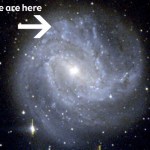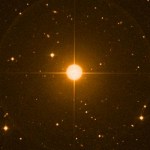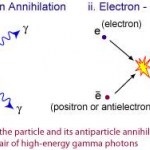solar
If you read SEWOTHA (which I highly recommend you to do; and read the book, not just the blog, which has gone a bit quiet recently) you'll discover the idea that the only really viable way of getting *all* our energy needs in a sustainable way is from solar power plants in the hot deserts - in the case of Yorp, North Africa / Sahara; in the case of the Americas, the hot dry bit in the middle whatever it is called (they are due to the Hadley circulation, so pretty well everyone has one not too far away).
Anyway, someone else has now noticed the idea and Science has a piece on it, mostly…
Chris S recently posted a lengthy comment, an extended excerpt from a recent Proceedings of the Royal Society paper. Full citation is: Solar change and climate: an update in the light of the current exceptional solar minimum
Mike Lockwood
Proc. R. Soc. A 8 February 2010 vol. 466 no. 2114 303-329
The abstract is here.
It makes for a very interesting read with lots to think about so I though I would promote it to a post of its own....
The history of science reveals a series of 'controversies'. These often develop into a state where there is little debate within the relevant academic…
It will shine still brighter when night is about you. May it be a light for you in dark places, when all other lights go out. -J.R.R. Tolkien
The night sky is no stranger to most of you. Once the Sun goes down in the west, the sky darkens, turning ever-deeper shades of blue until it approaches blackness, and stars and planets begin to come out against the fading backdrop.
Many things pollute the darkening sky, and can obscure your vision of the dimmest objects in the sky. Getting away from the city and light pollution is important, as is having clear skies without too many clouds in them.…
Get nine women who have thought a lot about peak oil and climate change together around a dining room table, and perhaps expectedly, the conversation turns umm...blue. Get them around *my* dining room table and the turn to sex is pretty inevitable, given a certain native blueness (this is a polite way of saying "dirty mindness"). The absence of gents from this affair (completely unintended) made us rather uninhibited about certain subjects. And at the end of one conversation, I realized that I've got a rather gaping hole in my body of works on how to go forward into the future - I've never…
When Benny and I were little, we used to bait a large Havahart trap and leave it in the backyard overnight. We caught squirrels, possums and raccoons. Half the fun was the surprise of what might be inside when we woke up the next day. The game ended the morning we discovered we had caught a skunk... The Solar Insect Theater is kind of the same idea, just with less risk of skunk capture and extraction.
Basically it's a wooden bug box with a solar powered light that charges during the day and lures insects at night. The insects "can leave anytime they want" although most naturally choose to…
No, really, I can hang with the big boys!
Although this is usually something we hear from people who are seemingly out of their league, due to diminutive stature, here on Earth:
(Muggsy Bogues is awesome.) Apparently, there are stars out there that have the same Napoleon Complex. According to this Press Release, a star only 1% as bright as the Sun just released a burst of energy as powerful as 1000 solar flares!
Now, that link is only too happy to provide you with an artist's rendition of what happened:
But let's compare this with real stuff, instead. Our Sun has a magnetic field that's…
Can you believe that I had a fight today with someone who's been dead for over 350 years, and I'm losing? -- Ethan, yesterday
Of course you can believe it, when the man I'm fighting with is Johannes Kepler. I don't get a chance to tell you about my research very often, mostly because it's still a work in progress. But my latest paper was just submitted and is now out of the way, and so I'd like to tell you what I'm working on at the moment.
Well, there we are in the galaxy. We look up at the night sky, and we see our planets as well as all the stars that surround us. But you know what we don…
Ahh, stars. Giant furnaces of nuclear fusion. Doing the stuff our Sun does, burning hydrogen fuel into helium (among other things) and emitting lots of visible light and energy in the process.
But when we take a look at brown dwarfs, they aren't like normal (i.e., main sequence) stars like our Sun. Instead of burning hydrogen into helium for their fuel, brown dwarfs don't generate enough pressure to make that happen; they can only burn hydrogen into deuterium.
Let's go over what the differences here are. A hydrogen nucleus is just a proton, with a mass of 938.272 MeV/c2. (I use these units…
Yesterday, my good friend (and SWAB reader) Brian wrote a great comment about the practical reasons to explore space, where he talked about the overall economic impact that Space Exploration has had on the economy, as well as the impact it has had on our knowledge and understanding of the Earth, its environment, and how to manage/mitigate the threats to it. And that's wonderful for exploring our Solar System and others.
But what do I do in the meantime? After all, this isn't what I study or explore. So I asked this:
The practical arguments as to why exploration of space is worthwhile…
This is just one of dozens of responses to common climate change denial arguments, which can all be found at How to Talk to a Climate Sceptic.
Objection:
The sun is the source of all the warmth on earth. Any increase in temperature is most likely due to changes in solar radiation.
Answer:
It's very true that the earth is warmed, for all practical purposes, entirely by solar radiation. So if the temperature is going up or down a reasonable place to find the cause would be the sun. Well, it turns out that it is more complicated than one might think to detect and measure changes in the amount…




